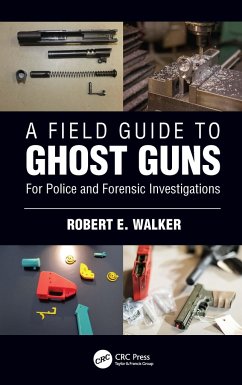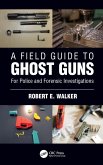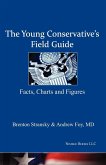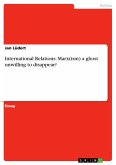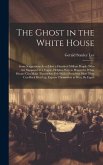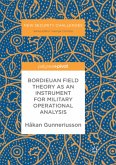While it has always been legal for a citizen in the United States to manufacture their own firearm, the sale and distribution of such items is illegal under current U.S. law. The primary impediment to individuals making their own weapons has been access to the tooling and machinery required to convert raw materials into finished parts for assembly. However, in the last fifteen years this paradigm has changed drastically. Home builders and companies have emerged to support individuals who choose to produce their own firearm. Kits with receivers and gun components are available for hobbyists, as are 3-D printable gun designs, downloadable from the Internet in some cases. This phenomenon has led to the term ghost guns: firearms whose existence is not reported to any third party and therefore whose existence is unknown and, largely, untraceable. A Field Guide to Ghost Guns: For Police and Forensic Investigators provides a useful brief for field investigators on the technical aspects of the self-made firearm, so-called "ghost guns. The first book to focus on the emergent issue of ghost guns, coverage addresses the history of firearms making and manufacture in the U.S.-including regulated and nonregulated manufacturing, details firearm components and accessories, how to assemble a Firearm, an overview of common Types of ghost guns, and investigative considerations. Though there have been increased calls to regulate guns in the wake of numerous mass shootings, the proliferation of ghost guns-and their increasing use in crimes-would likely require additional laws and regulatory measures. Since there are few knowledgeable firearm practitioners in the field, who can render qualified opinions on the subject, author Robb Walker has taken a practical, pragmatic approach to the topic. The book defines terminology, provides photographs, and explains the concepts surrounding homemade firearm in clear, easy to understand terms. Key Features: Addresses the technology and technical aspects in creating, assembling, and/or modifying homemade firearms-both printable and assembled from pre-fabricated components Discusses the rationale and motivations behind making one's own firearm Outlines what is currently legal and illegal under U.S. law, providing indicators for investigators for illegally configured firearms A Field Guide to Ghost Guns addresses the pressing need for a practical reference on the topic. The book provides police investigators and forensic ballistics experts a useful aid to understand legal aspects and to identify ghost guns, and the paraphernalia-tooling and machinery, and otherwise-indicative of gun making in a non-formal, factory setting.
Hinweis: Dieser Artikel kann nur an eine deutsche Lieferadresse ausgeliefert werden.
Hinweis: Dieser Artikel kann nur an eine deutsche Lieferadresse ausgeliefert werden.

